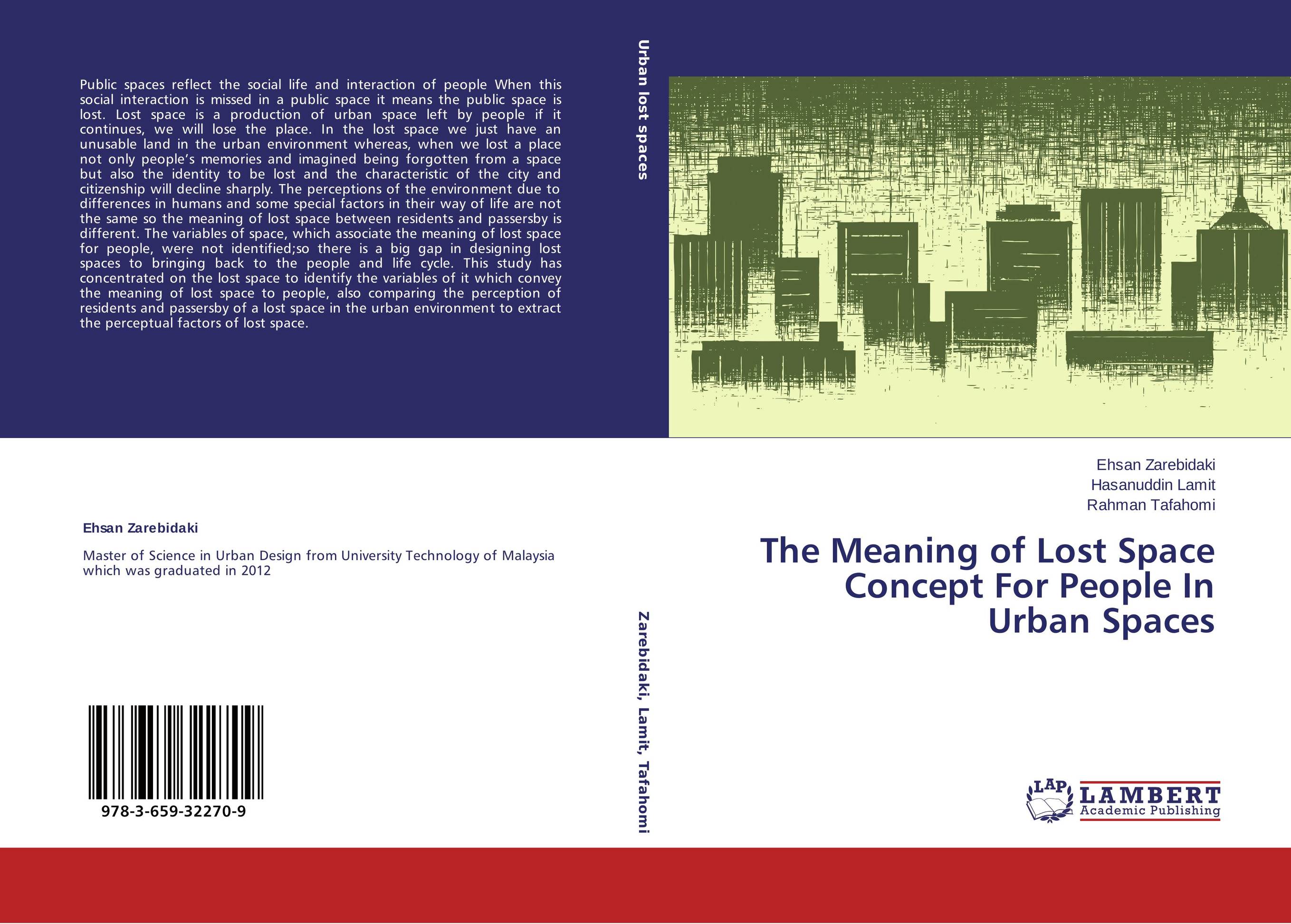| Поиск по каталогу |
|
(строгое соответствие)
|
- Профессиональная
- Научно-популярная
- Художественная
- Публицистика
- Детская
- Искусство
- Хобби, семья, дом
- Спорт
- Путеводители
- Блокноты, тетради, открытки
The Meaning of Lost Space Concept For People In Urban Spaces.

В наличии
| Местонахождение: Алматы | Состояние экземпляра: новый |

Бумажная
версия
версия
Автор: Ehsan Zarebidaki,Hasanuddin Lamit and Rahman Tafahomi
ISBN: 9783659322709
Год издания: 2013
Формат книги: 60×90/16 (145×215 мм)
Количество страниц: 188
Издательство: LAP LAMBERT Academic Publishing
Цена: 41355 тг
Положить в корзину
| Способы доставки в город Алматы * комплектация (срок до отгрузки) не более 2 рабочих дней |
| Самовывоз из города Алматы (пункты самовывоза партнёра CDEK) |
| Курьерская доставка CDEK из города Москва |
| Доставка Почтой России из города Москва |
Аннотация: Public spaces reflect the social life and interaction of people When this social interaction is missed in a public space it means the public space is lost. Lost space is a production of urban space left by people if it continues, we will lose the place. In the lost space we just have an unusable land in the urban environment whereas, when we lost a place not only people’s memories and imagined being forgotten from a space but also the identity to be lost and the characteristic of the city and citizenship will decline sharply. The perceptions of the environment due to differences in humans and some special factors in their way of life are not the same so the meaning of lost space between residents and passersby is different. The variables of space, which associate the meaning of lost space for people, were not identified;so there is a big gap in designing lost spaces to bringing back to the people and life cycle. This study has concentrated on the lost space to identify the variables of it which convey the meaning of lost space to people, also comparing the perception of residents and passersby of a lost space in the urban environment to extract the perceptual factors of lost space.
Ключевые слова: people’s perception, Connotation, Meaning of environment, Lost space, Visual and perceptual variables, Familiarity



